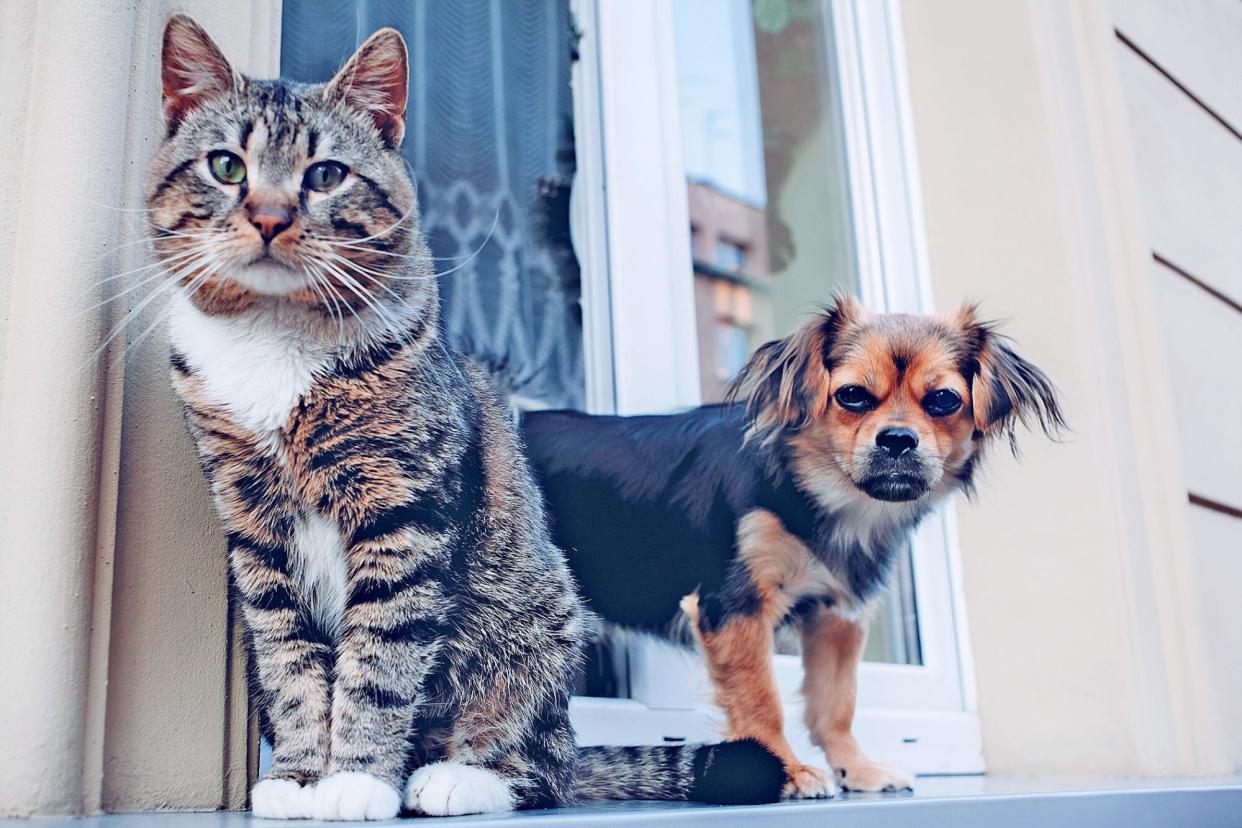Updated Your Pet's Microchip Contact Info Lately? It's Easy

Pawel Wewiorski / Getty
You know you have the paperwork somewhere. The cloud? Old-school filing cabinet? Junk drawer? At least, you think you have the pet microchip information for Spot or Fluffy.
We often forget to update contact information for this nifty locator after a move, if a pet leaves us to live with a family member or friend, or when we take in someone else's fuzzy pal. This totally makes sense, since relocating pets takes a lot of time and energy, and you're often more focused on keeping a dog or cat stress-free in their new surroundings.
We publish happy reunion stories all the time where beloved pets might have never returned home without the advantage of a microchip registry. Shelter finds a missing dog? Owner immediately picks him up because they see the microchip notice online. Kitty missing for four years found under a car? She's returned to her grateful family because of a microchip. The more registered pets, the better!
While there are numerous microchip registries, you don't have to submit information to (or pay for!) each one. But a few key services help a veterinarian or rescue organization solve the mystery of a lost pet more quickly.
RELATED: Holding Out 'Hope': Thanks to Microchip, Owner Reunited With Cat After House Fire
Cat and Dog Microchip Registration
Hooray! Your pet is microchipped. And probably tagged, too, since you love them so much. But the American Veterinary Medical Association (AVMA) states that only 6 out of 10 microchips are registered in locator databases. Since 1 in 3 pets will be lost at some point, updated registration increases the probability of successful recovery—the odds are more than twice as likely for dogs and about 20 times as likely for cats, according to the AVMA.
RELATED: QALO Launches TraQ, a New Bluetooth-Enabled Dog Tag
If you can't find your cat or dog's microchip registration or chip number, ask your veterinarian to do a quick scan. Some major pet retailers can do this or, if your pet is a rescue, the shelter where you adopted her. There's usually no charge to do this. They'll give you the company information so you can go online and amend contact details such as address, phone number, and email. Only the chip service can update microchip information, not your vet or other organizations.
Sara Austin, DVM, is the owner of Austin Veterinary Hospital in Beaufort, N.C. She says there are many pet microchip manufacturers, and the number is growing. But as long as you or a pet adoption agency registered with a service that traces microchip information through the American Animal Hospital Association (AAHA), a vet's office or shelter uses the AAHA's Universal Pet Microchip Lookup Tool to start the recovery process.
"When we scan a dog or cat's chip, we're not given the pet owner's contact information, but it gives us the company we can call to have them notify the owner of a found pet," Austin says. "Unfortunately, it's not an all-inclusive process, as some databases aren't participating and cannot be found with this tool. It's actually shocking sometimes how difficult it can be to track down a microchip."
How to Update Your Pet's Microchip
Austin says you don't have to register with more than one service if the current chip manufacturer is linked to the AAHA's microchip lookup tool and the chip can be traced through it. But if you discover a company isn't connected to this universal system, it might be best to register with one that is.
The AMVA recommends the following services:
The average cost for initial chip purchase and registration is $35–$55, and that often includes time at the vet clinic for implantation. But if your pet already has an implanted chip, you should only have to update your contact details, which is free.
"There can be yearly fees associated with each chip, but it tends to be marketing 'extras,'" Austin says. "Most companies don't charge a yearly fee simply to keep your information in the database. So keep your information up-to-date. I can't stress that enough."
The AVMA promotes National Check the Chip Day on August 15 as a helpful reminder to make sure all your pet's information is correct so you can rest assured they'll always come home.

